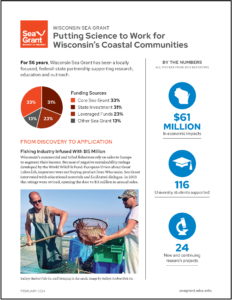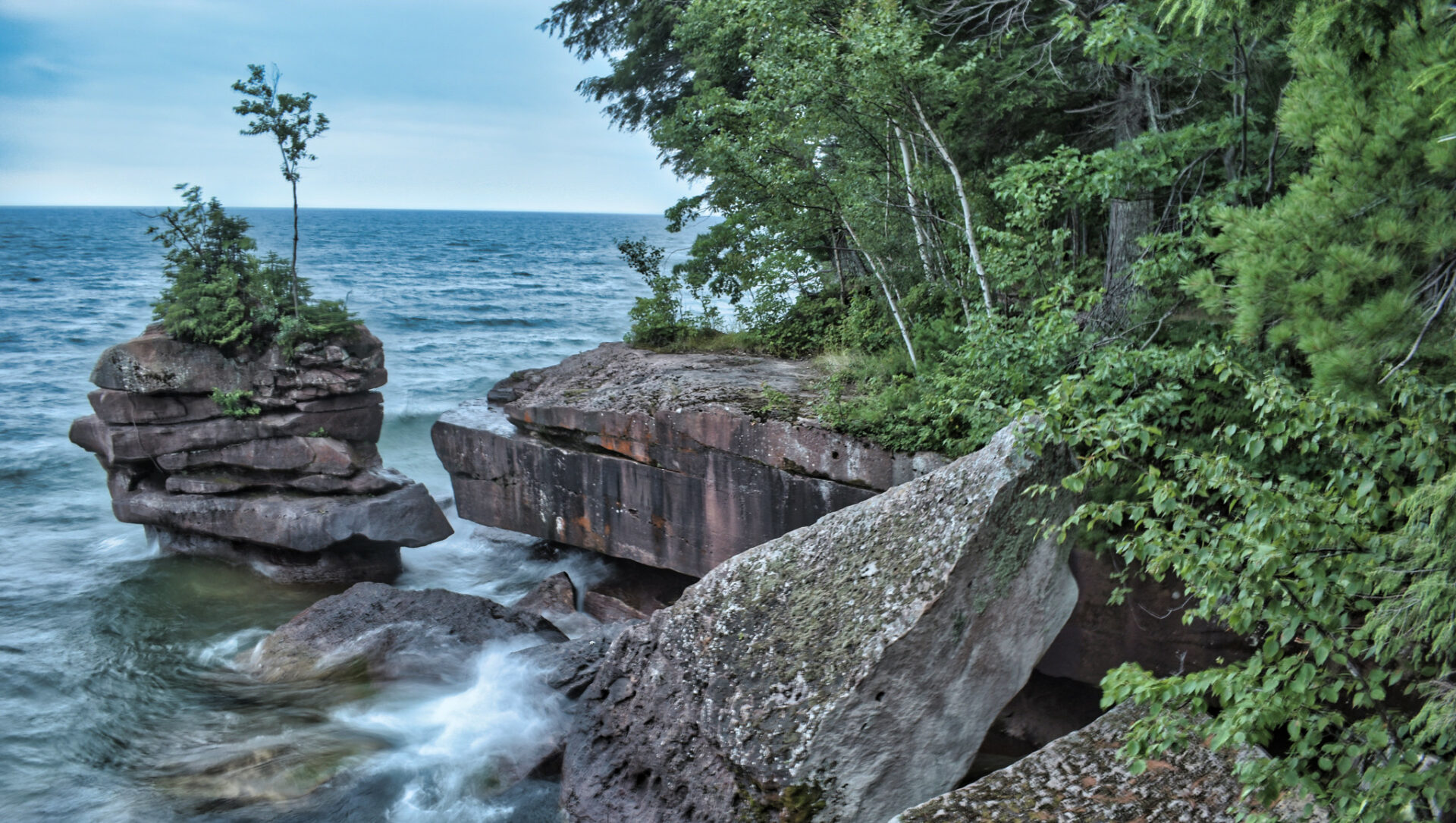Wisconsin Sea Grant is a statewide program of basic and applied research, education, outreach and technology transfer dedicated to the stewardship and sustainable use of the nation’s Great Lakes and ocean resources.
 Headquartered at the University of Wisconsin-Madison, the institute is housed in the Office of the Vice Chancellor for Research’s Aquatic Sciences Center. (See our Water and Land Acknowledgement.) Wisconsin Sea Grant is part of a national network of 34 university-based programs funded through the National Sea Grant College Program, National Oceanic and Atmospheric Administration, U.S. Department of Commerce and through matching contributions from participating states and the private sector.
Headquartered at the University of Wisconsin-Madison, the institute is housed in the Office of the Vice Chancellor for Research’s Aquatic Sciences Center. (See our Water and Land Acknowledgement.) Wisconsin Sea Grant is part of a national network of 34 university-based programs funded through the National Sea Grant College Program, National Oceanic and Atmospheric Administration, U.S. Department of Commerce and through matching contributions from participating states and the private sector.
Please contact us if you need anything on this website in an alternate format, info@seagrant.wisc.edu or (608) 262-0905.
Each year, the program scrutinizes the impact it has on coastal communities, serving people and better understanding the Great Lakes ecosystem. Our 2025 program one sheet provides a summary. Additionally, you can visit our timeline for past program and Great Lakes milestones.
Make a tax-deductible gift
Please consider supporting our work in support of Great Lakes research, education and outreach.


